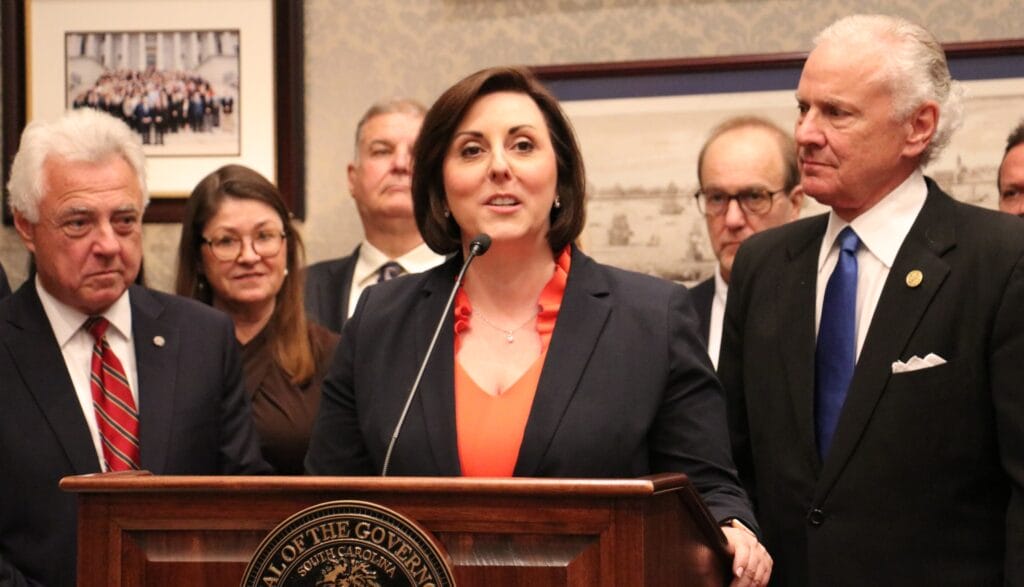Navigating uncharted waters: state officials defying federal rules

It’s often asserted, especially at American Habits, that “the states should do more to prevent federal overreach.” This “doing more” means actively exercising state sovereignty to check and balance federal power. But how is this “active sovereignty” to be employed? Surely, it can’t be limited to a handful of governors making the case for federalism in the public square? Or, as necessary as it may be, state attorneys general suing the federal government (ironically) in federal court? Rather, the active sovereignty James Madison refers to in Federalist 45 is derived from multiple officeholders and levels of authority. Fortunately, as federal power expands, statewide officials of all kinds – agricultural commissioners, education superintendents, and secretaries of state – are responding to the challenge.
“We’re at a point now, given the level of federal intrusion, where it’s all hands on deck,” cautions Mississippi Commissioner of Agriculture & Commerce Andy Gipson. Gipson has authored and signed multiple comments pushing back on federal rulemaking. “Just like almost every other statewide official in America, I have taken an oath to support, obey, and defend the Constitution of the United States and my state constitution. It’s my job to do everything I can to try to restore constitutional government to our country and our state.”
Oklahoma State Superintendent of Public Instruction Ryan Walters is similarly using his office to challenge illegitimate federal initiatives. Objecting to the administration’s recent rewrite of Title IX regulations, Walters said: “I believe these rule changes are illegal and unconstitutional. They violate the First Amendment, the Administrative Procedures Act, and longstanding civil rights protections for women and girls.”
Walters views this as a much bigger battle than just Title IX. “The Biden administration wants public schools to be engines of cultural change. They have a comprehensive agenda aimed at undermining parental rights in public education. Increasingly, they also want to block states from having any real authority, even though federal funding is a fraction of overall state and local education spending. I am fighting for the people and parents of Oklahoma to be in charge of their own schools, not a federal bureaucracy that is putting politics ahead of kids.”
Along with Commissioner Gipson and other statewide officials, Walters also opposed the Department of Labor’s attempt to federalize apprenticeship and career technical education programs. In a formal comment presented to the Department earlier this year, these statewide officeholders joined legislators from 15 states in questioning the legality of the proposed rule.
“The proposed regulations strip state agencies of any meaningful participation in apprenticeship programs,” they wrote. “If this proposal goes into effect, state agencies would have no opportunity to be innovative in creating apprenticeship programs designed to meet the needs of the communities they serve. Rather, every aspect of their programs would be subject to the approval of the federal Office of Apprenticeships. State agencies would be paper pushers and nothing more. On its face that is not what Congress intended.”
Ellen Weaver, superintendent of education for South Carolina, likewise took exception to the Title IX and apprenticeship rule revisions. Weaver is the founder and former CEO of the Palmetto Promise Institute. Weaver went one step further, advising South Carolina school superintendents to refrain from implementing the new Title IX guidance. She writes in an April 23, 2024, letter to local school officials and state school board members:
“This rule is contrary to the express text and undisputed original understanding of the statute it purports to implement. … Therefore, we recommend districts not implement the new rule at this time. … My clear message to district leaders: you are not alone, we have your back, and we value your input. Together we will navigate these uncharted waters, avoiding divisive distractions from Washington.”
“We’re at a point now, given the level of federal intrusion, where it’s all hands on deck.”
Secretaries of State around the country are also standing up for federalist principles. In Missouri, Secretary of State John “Jay” Ashcroft is defending private property rights by opposing a recently finalized rule related to OSHA safety inspections. Alabama SOS Wes Allen and Mississippi SOS Michael Watson are asking Congress to repeal burdensome requirements related to the Department of Treasury’s Financial Crimes Enforcement Network (FinCEN). Previously, Watson joined 14 other secretaries in questioning a Biden executive order requiring federal agencies to essentially ignore the U.S. Constitution’s (Article 1, Section 4) requirement that states administer elections, setting forth the “Times, Places and Manner of holding Elections.”
“Federalism is about restoring a culture of self-government,” Missouri Secretary of State Ashcroft reminds us. “This has to begin in the states. It starts by asking the basic question of ‘Who’s in charge here?’ Under our system of government, the states are supposed to be in charge. And their primary duty is to secure the God-given rights of each citizen. Whether you are a secretary of state, a governor, or just an ordinary citizen, we all have a part to play in resisting illegal and unconstitutional federal mandates.”
Jameson Taylor (PhD) is a visiting fellow with the Center for Practical Federalism. He has a 20-year track record of advancing pro-liberty and pro-family policies in multiple states.



